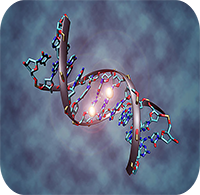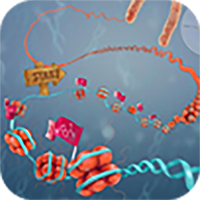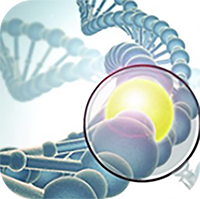Bisulfite sequencing (Bis-Seq) technique is an essential combination of bisulfite conversion and next generation sequencing (NGS). This technology is the basic tool for genome-wide DNA methylation analysis. The combination of bisulfite conversion and high-throughput sequencing provides the most quantitative method for DNA methylation analysis at single-base resolution. The unmethylated cytosine is converted to uracil by sodium bisulfite treatment, while the methylated cytosine remains unchanged. A library of genomic DNA is constructed after treatment of bisulfite and then subjected to deep sequencing to generate the quantitative measurement of single cytosine methylation across the whole genome.
Creative BioMart offers comprehensive bisulfite sequencing services to pave the way for our customers to explore the dynamic DNA methylome landscapes, thereby providing insights into effect of DNA methylation on transcriptional regulation, and identifying novel epigenetic biomarkers and therapeutic targets for diseases.
Bisulfite Sequencing Services at Creative BioMart

Whole-Genome Bisulfite Sequencing (WGBS)
WGBS is an effective and reliable strategy for the determination of methylation of CpG/CHG/CHH loci across the entire genome. This method is capable of testing approximately 90% of the cytosines in the genomes studied so far. We can also provide single-cell WGBS service which offers single-base resolution and absolute quantification of 5mC genome-wide within an individual cell.

Reduced Representation Bisulfite Sequencing (RRBS)
RRBS is a cost-effective technique for quantification of genome-wide DNA methylation. It allows researchers to select desired genomic contexts by choosing the density of CpGs in the DNA regions examined, and it captures 85% of CpG islands and 60% of promoters. The single-cell RRBS service can analyze the complexity of DNA methylome landscapes within a single cell.

Targeted Bisulfite Sequencing
Targeted bisulfite sequencing is an accurate, efficient and economic technology for DNA methylation analysis of target regions, including a hybridization-based step to capture the region of interest or region-specific PCR amplification for evaluating site-specific DNA methylation changes.
These technologies based on Bis-Seq have their own advantages and limitations, and the selection of appropriate methods according to specific research requirements can contribute to the research progress. While you can choose the techniques you prefer, we can also help recommend. If you have any need, please don’t hesitate to contact us. Creative BioMart is here to offer you professional and thoughtful service!
USA
Enter your email here to subscribe.
Follow us on

Easy access to products and services you need from our library via powerful searching tools